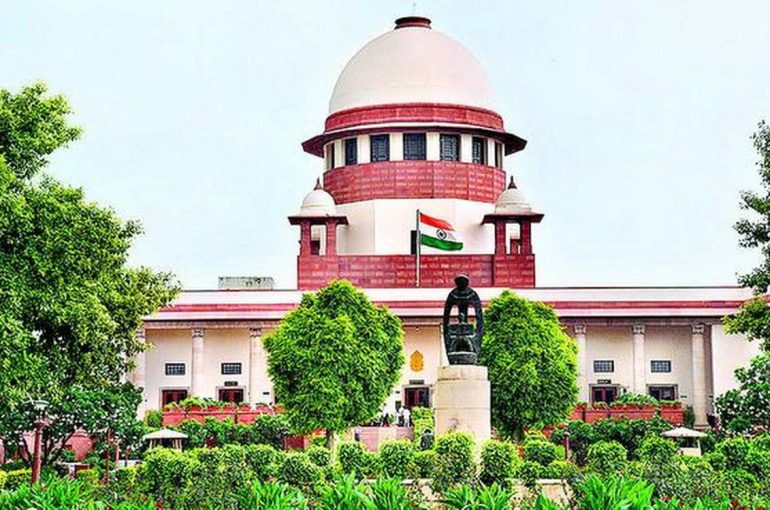THE CLOUDED WILL: WHEN POSSESSION PREVAILS OVER PAPER OWNERSHIP

In S. Santhana Lakshmi & Ors. v. D. Rajammal, 2025 INSC 1197, the Supreme Court of India, comprising Justice Ahsanuddin Amanullah and Justice K. Vinod Chandran, delivered a nuanced judgment on 7 October 2025, exploring the interplay between title, possession and injunction relief under property law. The Court examined whether a plaintiff can successfully seek an injunction over property possession when her own pleadings admit that possession lies with the defendant.
The Judgment reaffirms that in suits for injunction simpliciter, possession determines the outcome — not mere ownership or testamentary entitlement — and that ill-framed pleadings can weaken even a legally valid claim.
BRIEF FACTS
The Respondent, Rajammal, filed a suit against her brother Munuswamy, seeking an injunction restraining him from (i) alienating or encumbering the property and (ii) interfering with her peaceful possession of the same. The property in question measured 1.74½ acres, of which she claimed half share (0.87¼ acres) on the strength of a Will dated 30 September 1985, executed by their father Rangaswamy Naidu, bequeathing the property equally to Rajammal and another brother, Govindarajan.
Rajammal asserted that Munuswamy was occupying the property merely as a tenant, whereas the Defendant claimed co-ownership, asserting that their father had divided the land between his sons during his lifetime.
The Trial Court upheld the Will, granted both injunctions, and restrained Munuswamy from alienating the land or disturbing Rajammal’s possession. However, the First Appellate Court reversed the decree, holding that the property was ancestral and that the father lacked the right to bequeath it by Will. The High Court, in second appeal, restored the Trial Court’s Judgment, finding that the Will was duly proved and that possession followed title.
Aggrieved, the legal heirs of Munuswamy approached the Supreme Court.
ISSUES OF LAW
1)Whether a suit for injunction simpliciter is maintainable when the plaintiff admits that the defendant is in possession of the property.
2)Whether proof of a Will is sufficient to grant injunctive relief without a declaration of ownership and recovery of possession.
3)Whether the courts below erred in granting injunction despite the absence of a clear finding on possession and title.
ANALYSIS OF THE JUDGMENT
The Supreme Court carefully scrutinized the pleadings and evidence. It observed that while the Will dated 30 September 1985 was indeed proved, the right of the testator to bequeath the property remained uncertain — since the land was alleged to have been previously divided among his sons through an Agreement of 1983.
The Bench highlighted several contradictions in the Plaintiff’s case:
Rajammal admitted that Munuswamy was in possession of the property, undermining her claim of peaceful possession.
The Plaintiff did not seek recovery of possession or a declaration of ownership, though both were essential once her possession was disputed.
The pleadings revealed that the Defendant had constructed a house on the property and was residing there with his family, asserting ownership rather than tenancy.
The Court reiterated that when possession is admitted to be with the Defendant, the Plaintiff cannot succeed in obtaining an injunction restraining interference with “peaceful enjoyment.” However, it held that an injunction against alienation was valid, as the Defendant himself had not obtained any declaration of title.
The Judgment emphasizes a crucial procedural principle:
“While asserting a Will and title on its strength, there should have been a declaration of title sought, especially when possession is with another.”
Ultimately, the Supreme Court found both parties’ rights unsettled and declared that the Will stood proved, but the ownership of the property remained clouded. It therefore reserved liberty to both sides to file appropriate proceedings for declaration of title and possession within three months. Until then, no alienation or encumbrance of the property was to be made by either party.
CONCLUSION
The Supreme Court’s ruling in S. Santhana Lakshmi v. D. Rajammal serves as a cautionary precedent on the limitations of injunction suits. Even a valid testamentary title cannot substitute for possession or a declaratory relief when ownership is contested. The decision underscores that possession remains the cornerstone of injunctions and that courts cannot grant protective orders based merely on ownership claims not accompanied by possession.
By balancing the equities and preserving the property status quo, the Court demonstrated a pragmatic approach: acknowledging the validity of the Will, yet preventing either side from gaining undue advantage without a definitive adjudication of title and possession.
In essence, the ruling teaches a simple but vital procedural truth — a well-drafted plaint can secure rights, but an ill-drafted one can forfeit them, even when the law favours you.
SARTHAK KALRA
Senior Legal Associate
The Indian Lawyer & Allied Services
Please log onto our YouTube channel, The Indian Lawyer Legal Tips, to learn about various aspects of the law. Our latest Video, titled “Startup Funding Laws in India Explained | Legal Guide by Advocate Sushila Ram Varma|” can be viewed at the link below:





































Leave a Reply